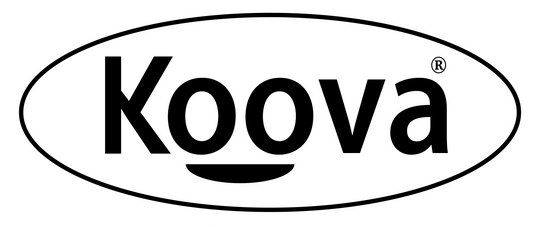Frequently Asked Questions
1. What does sustainability mean in a business context?
2. Why should organizations adopt sustainable practices?
3. What practical steps can organizations take to foster sustainability?
4. How can equipment management contribute to sustainability?
5. What are some examples of companies leading in sustainability?
In today's fast-paced world, organizations must take a step back and consider how their practices impact the environment. Incorporating sustainability into your organizational practices is not just a trend; it’s a necessity for fostering a better future. With the increasing awareness of climate change and environmental issues, businesses are now more scrupulous than ever about adopting sustainable practices, from reducing waste to utilizing eco-friendly products. One specific area often overlooked is how you can sustainably manage tools and equipment, such as investing in a garden tool organizer to promote neatness and efficiency while also caring for the environment.
Understanding Sustainability in a Corporate Context
Before diving into how your organization can embed sustainability into its practices, it’s essential to grasp what sustainability means in a business setting. Sustainability in business refers to the practice of creating long-term value in an organization by considering how a given operation impacts the environment, economy, and society. Achieving sustainability means implementing practices that not only benefit the organization economically but also aim to reduce environmental footprints and promote social responsibility.
The Importance of Sustainable Practices
1. Long-term Cost Efficiency: Sustainable practices can often lead to considerable cost savings in the long run. By reducing waste and energy consumption, your organization can lower operational costs. For instance, using a garden tool organizer not only keeps your tools in place but also reduces the frequency of buying replacements, saving money over time.
2. Brand Image and Loyalty: Today's consumers are increasingly eco-conscious. Organizations that demonstrate commitment to sustainability are more likely to attract and retain customers. Maintaining a good company image can significantly increase sales and customer loyalty. By promoting a sustainable approach in your business practices, customers will feel good about supporting you.
3. Legal Compliance and Risk Management: There’s a growing legislative push toward sustainable practices. By proactively adopting eco-friendly practices, your organization will be better prepared to comply with regulations and avoid potential legal issues.
4. Employee Satisfaction: Employees are increasingly looking to work for organizations that align with their values. A commitment to sustainability can enhance workplace morale, reduce turnover, and attract top talent.
Practical Steps to Foster Sustainability in Your Organization
Bringing sustainability into a business model might seem daunting, yet it can be broken down into manageable steps. Below are practical suggestions to implement sustainable practices in your organization:
Assess Your Current Practices
The first step towards a sustainable future is to take stock of your current operations. Conduct a thorough audit of your processes, focusing on resource consumption, waste generation, and social impacts. This will provide a foundation for identifying areas where improvements can be made.
Define Your Goals
While understanding your current practices is crucial, it’s equally important to set sustainability goals. What does your organization aim to achieve regarding sustainability? Whether it is reducing energy consumption by a certain percentage or implementing waste-reduction practices, having clear objectives will guide your efforts.
Implement Eco-Friendly Solutions
Once you have your goals, start incorporating eco-friendly products and practices that align with those objectives. This could include sustainable office supplies, energy-efficient appliances, or even a garden tool organizer for maintaining an organized and environmentally responsible workspace.
Educate Your Employees
Creating a culture of sustainability requires everyone on board. Arrange training sessions to inform and engage employees about sustainable practices and the importance of their involvement. This not only boosts awareness but also generates ideas on how to incorporate sustainability within various departments.
Track Progress and Adapt
To ensure your sustainable initiatives are having the desired impact, it’s vital to monitor your progress regularly. This could mean using key performance indicators (KPIs) to measure energy use, costs savings, or employee engagement levels in sustainability efforts. Adapt your practices as needed based on this assessment.
Incorporating Sustainable Tools and Practices
Incorporating sustainability into your tools and equipment can have a significant impact on your organization’s environmental footprint. Here are some ways to integrate sustainable practices related to equipment management:
Your Organizational Space
The layout and organization of your workspace can play a vital role in sustainability. Design your workspace in a way that promotes efficiency and minimizes waste. Consider incorporating storage solutions like a garden tool organizer for outdoor settings, allowing tools to be stored properly and for longer durations, thus reducing the need for replacements.
Choose Sustainable Products
When replenishing office supplies or equipment, prioritize purchasing eco-friendly products. Look for certifications such as Energy Star for appliances or opt for materials made from recycled products. This will reflect your organization’s values and commitment to sustainability.
Host Eco-Friendly Events
Organizing events and team-building activities centered on sustainability can foster a good company culture. Activities such as community clean-ups or workshops about sustainable gardening that include making use of a garden tool organizer can encourage teamwork and collective engagement for a greener future.
Creating Partnerships for Sustainable Practices
Collaborating with other organizations and businesses that prioritize sustainability can amplify your efforts. Seek partnerships that complement your values and can help enhance your sustainability strategy.
Local Impact and Community Engagement
Engaging with your local community through sustainability initiatives can make a positive impact. Consider sponsoring local environmental workshops or participating in community gardens. This not only helps your brand to build goodwill but also demonstrates your commitment to contributing positively to society.
Encourage Suppliers and Vendors to Go Green
As part of your sustainability journey, engage your suppliers and vendors on the importance of sustainable practices. Work together to promote eco-friendly solutions, such as using sustainable packaging and materials. This creates a wider network of sustainability that can reflect on your organization’s values.
Success Stories: Businesses Leading the Way in Sustainability
Looking at organizations that are currently embracing sustainable practices can provide inspiration and insight into what is possible. A few notable examples include:
- Patagonia: Known for its sustainable practices, Patagonia has committed itself to using recycled materials and ensuring fair labor practices.
- IKEA: The furniture giant is committed to sustainability through responsible sourcing and offering sustainable solutions for homes.
- The Body Shop: This brand has long advocated for fair trade and ethical sourcing, showcasing its dedication to uplifting communities while protecting the planet.
These organizations demonstrate that sustainable practices can yield both environmental benefits and business advantages, setting a precedent for others to follow.
Expanding Your Sustainability Reach
As your organization moves forward with its sustainability initiatives, consider ways to communicate your efforts to a broader audience. Share success stories, challenges, and lessons learned through marketing channels to engage customers and stakeholders alike. This transparency can amplify your reach and foster greater connections within the community.
The Power of Social Media
Utilize your social media platforms to highlight your commitment to sustainability. Posting about eco-friendly practices, projects like community outreach initiatives, or sharing features about using solutions like a garden tool organizer can create authentic engagement with your audience and invite others to join your journey.
Incorporate Feedback Mechanisms
Encourage feedback from employees, customers, and partners regarding your sustainability practices. This can spark new ideas and help to understand how your initiatives are perceived, shaping your future strategies.
Onward to a Greener Future
Incorporating sustainability into your organization's practices is not a one-time effort but a long-term commitment that requires continuous evolution. As you embark on this journey, remember that every step you take matters, whether investing in a garden tool organizer for efficiency or setting ambitious sustainability goals. The reality is, businesses that prioritize sustainable practices will not only benefit the planet but also thrive in competitive markets.
As you champion sustainability within your organization, you'll cultivate a culture of responsibility, creativity, and engagement—that’s not just good for business, it’s good for the world. The more we strive to make sustainable choices, the closer we get to shaping a brighter tomorrow. So, embrace the green revolution—your future (and the planet’s) depends on it!


